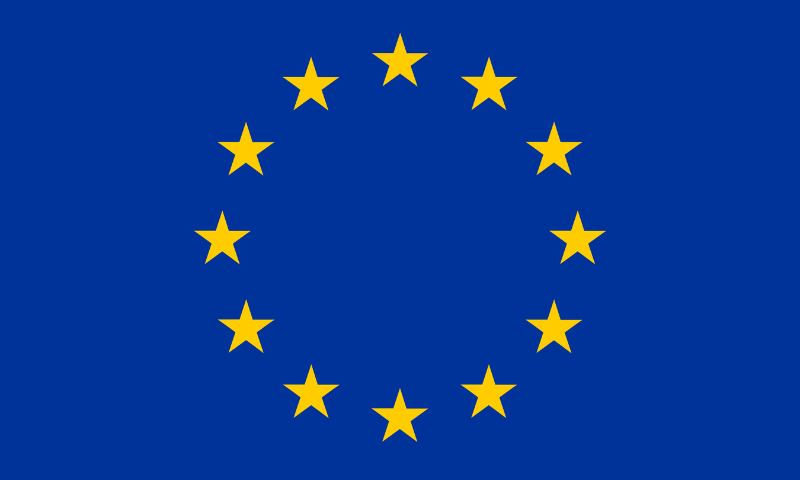From employee to entrepreneur: how to freelance in the Benelux
26 Jun, 20236 minsMaking the move from being employed to being self-employed and freelancing can be highly rew...

Making the move from being employed to being self-employed and freelancing can be highly rewarding - especially if you're a technology professional in the Benelux region. If you’re based in Belgium, the Netherlands or Luxembourg and are looking to take the plunge into freelancing, then this blog is for you. Here we discuss the why, the how, and some practical advice.
Why freelance?
There are lots of reasons why you might choose to go self-employed and freelance. For techies, one of the primary reasons is the ability to work on a wide range of exciting and challenging projects. As a freelancer, you’ll typically have more control over the work you do and can be selective about the projects you take on. This means additional control over the direction you take and whether you’re a specialist or generalist. You’re not tied into the usual red-tape that comes with climbing the corporate ladder. Not to mention increased job satisfaction, as well as the chance to work on projects that align more closely with your interests.
Importantly, as a freelancer, you’re viewed differently on projects. Rather than simply another team member, you’re a consultant, hired to provide specific value and advice. You’re upskilling an internal team and solving problems within a business. And don’t forget the wide range of environments and industries you’ll experience as a freelancer too.
Benefits of freelancing in the Benelux
So, we know about the flexibility and control freelancing offers, but what about the specifics of working for yourself in the Benelux region?
Well, for starters, the Benelux is known for being one of the most entrepreneurial areas in Europe. The Netherlands’ capital Amsterdam is home to multinational HQs such as Nike, Philips, Tesla, IKEA, Panasonic, and Netflix, and in Belgium’s capital Brussels you’ll find the likes of General Electric, IBM, Toyota, Microsoft and Pfizer. Luxembourg, despite being one of the smaller European countries, is still a bustling tech hub with companies including Vodafone, Ferrero, and Amazon all having a strong presence there. And in all 3 countries, you'll find bustling financial hubs for tech professionals to prosper.
But did you know the Benelux is also home to more than 2.5 million (1.2 million in Belgium and 1.1 million in the Netherlands) actively self-employed individuals?
In Belgium, an increasing number of the 1.2 million self-employed are expats. Statistics suggest there are 620,000+ live businesses in the country, with the majority small or medium-sized enterprises that contribute over 60% of the economy. Exciting news for freelancers!
The Netherlands boasts a strong, active freelance economy too, and vast work opportunities for expats. Not only has it been labelled the business hub of the world, but it’s estimated that more than one million of the country’s population of 17 million (5%) are actively working in a freelance capacity.
Jonnie Cartmill, CEO of Workfree.io, states, “As a top tech hub, the Netherlands has always been open to innovation and change. With the rise of remote work due to Covid, and recent layoffs, more and more are turning to freelancing. Trends are like the US, 50% of GenZ & Millennials freelance. 70% of tech execs rely on freelancing to fill skills gaps and access talent quickly. Companies embracing blended teams of freelancers and fulltime employees will have a competitive edge in the ‘new’ war on talent.”
And in Luxembourg, a growing population means fantastic opportunities for freelancers to serve clients. There are also added attractions to the country, including the fact that you can set up a freelance business (as a sole proprietor) there really easily. The social contributions are less than elsewhere, too – around just 26-27% of taxable income.
Life in the Benelux
Whether you're an expat or a local, let’s not forget the aesthetics – the icing on the cake. The Benelux comprises some of the most stunning locations in the world. Belgium’s capital, Brussels, for instance, may be one of the most popular locations to set up as a freelancer, but it’s also a famously picturesque and bustling city. Liege, Ghent, and Antwerp are other popular choices for entrepreneurs, not forgetting Leuven and the beautiful Bruges too.
In the Netherlands, visitors are captivated by Amsterdam’s canals, the windmills of Zaanse Schans, or the billions of Tulips grown around the Alkmaar area.
And in Luxembourg, an impressive 35% of the country is covered with forests. You can take some time out with 900km of cycling tracks before returning to city life with the reassurance you’re in the safest country in the world.
Ready to factor in some time to enjoy the beautiful and culture-rich surroundings the Benelux has to offer? Freelancing is more likely to allow for more flexibility than a traditional employed role, so what are you waiting for?
The how – practical advice for freelancing in the Benelux
If you're ready to take the plunge from an employed role into freelancing, there are a few things you'll need to do first. Here are some practical tips to help you make the transition from employee to freelancer:
(1) Sort out the legalities
Check out the legalities for the country you’ll be freelancing in. For instance, in Belgium, you need to register for trading and tax. In the Netherlands, you’ll need to register at the Dutch Chamber of Commerce and in Luxembourg, there’s a process involving obtaining a permit and registering with CCSS. Rules, licences, and permits will differ across countries/regions.
(2) Begin networking early
Start connecting with other freelancers in your network and ask for their expert advice. Join relevant groups, attend local events, and leverage LinkedIn to build your brand and expand your network. Also, look out for recruiters who post freelance roles. The freelance interview and onboarding process is very quick. Roles are usually released and filled within a week, sometimes mere days. You’ll want to be top of mind when a new opportunity becomes available.
(3) Get your CV ready to go
Prepare your CV. Clearly lay out all your projects and experience. Freelance hiring (and onboarding) normally happens much quicker than with employed roles, so it’s wise to be prepared.
(4) Determine your rate
Set realistic rates. As a new freelancer, you may be tempted to charge less to attract clients. However, it's important to set realistic rates that align with your skills and experience. Speak to recruiters to get an idea of current market rates, and remember you can always renegotiate further down the line once you’ve delivered and proved your value.
(4) Stay organised
Keep detailed records of your work, expenses, and invoicing. This will help you stay on top of your finances and avoid any issues come tax time. Consider finding a (local) accountant and/or lawyer to help with tax implications.
(5) Stay on top of industry trends
As a freelancer, it's important to stay up to date with the latest industry trends and developments. Attend conferences, read industry publications, and stay engaged with your network to ensure you're always on top of your game. Niche skill sets are particularly in demand right now, so make sure you’re ready to hit the ground running and can add more value quicker than an employee could.
Moving from being employed to freelancing in the Benelux can be exciting and rewarding. Whether it's increased flexibility and control over your work, higher rates, or the ability to work on the projects of your choice, there are many reasons why freelancing’s a great move!
Ready to take the leap? We’re here to help. Contact one of our tech consultants to consider the Benelux.




